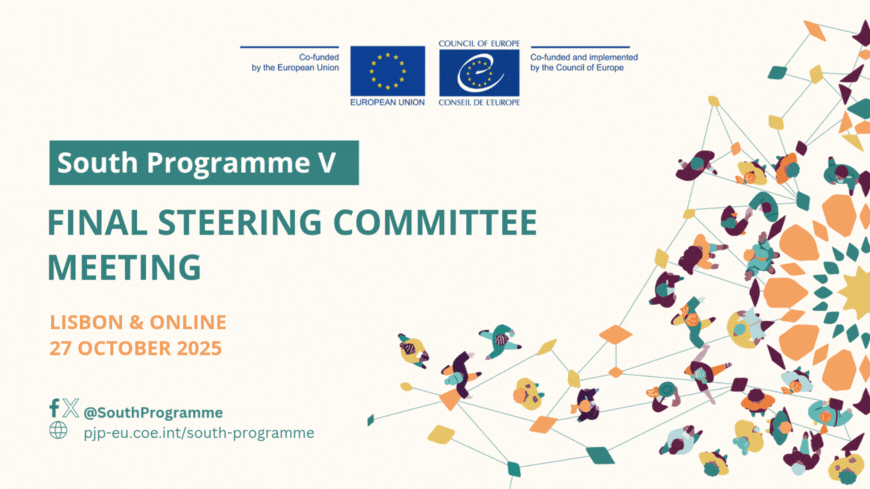The South Programme VI “Strengthening Euro-Mediterranean legal space for shared prosperity and human security” is a joint initiative between the European Union and the Council of Europe over the period of November 2025 – December 2028. Its objective is to support the progressive enlargement of the common legal space between Europe and the Southern Mediterranean region based on international human rights and rule of law standards.
This action is a continuation of the successive phases of the South Programme since 2012, during which the capacities of partner authorities and institutions in the Southern Mediterranean region have been strengthened by drawing on the added value of the Council of Europe’s standards, and the expertise of its monitoring mechanisms, advisory bodies and independent experts. The flexible and demand-driven approach of the Programme responds to partners’ specific needs, while regional actions address common interests and promote joint action across key priority areas.

